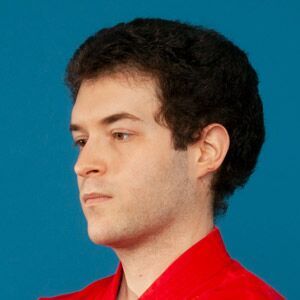Multiverse or Universe? Physicists Debate

NEW YORK — Whether you believe our universe is unique or one of many coexisting realities, there's a scientific model that backs up your views. Cosmologists on both sides debated the issue June 1 here at the "Multiverse: One Universe or Many?" panel at the World Science Festival.
"Is the multiverse idea something that's implied by deficiencies in existing cosmological theories, or is it something some scientists need to help them explain certain unresolvable problems in existing theory?" journalist John Hockenberry asked, acting as moderator to scientists Andreas Albrecht, Alan Guth, Andrei Linde, and Neil Turok, who took the stage at New York University's Skirball Center for the Performing Arts.
The possibility of a multiverse is raised by the theory of cosmic inflation. This idea posits that the universe grew exponentially in the first fraction of a second following the Big Bang, expanding even faster than the speed of light. Some versions of this theory suggest that certain areas of the universe expanded faster than others, creating separate bubbles of space-time that might have developed into their own universes. [5 Reasons We May Live in a Multiverse]
The theory of inflation was thought untestable when MIT cosmologist Guth and his contemporaries first proposed it more than 30 years ago, but since then observations of the light left over from the Big Bang, called the cosmic microwave background radiation, have offered strong support for inflation.
In fact, although the four scientists did not see eye-to-eye on the existence of multiple universes, they all considered inflation to be a workable starting point for explaining the size and uniformity of the observable universe. "The four of us agree far more than we disagree," said Turok, director of the Perimeter Institute for Theoretical Physics in Ontario, Canada.
While inflation does not necessarily predict multiple universes, Guth said that it does make them feasible. "Energy is either positive or negative, and in fact, the total energy of our universe is completely consistent with adding up to zero," he said. If the universe requires a sum total of zero energy to produce, then "the universe is the ultimate free lunch," Guth said. "Nothing we know can only be produced once."
"I was really impressed by the universe until you said that," Hockenberry replied.
Breaking space news, the latest updates on rocket launches, skywatching events and more!
The strongest support for the concept of a multiverse came from Linde, a physicist at Stanford University. When he began to research inflationary theory, he was struck by the incredible regularity of the universe.
"I was nearly crying. It was that magnificent," he said.
Linde explained that the universe's regular distribution of matter and heat, save for structures like galaxies, is a cosmological principle. Because inflation created a stable, uniform cosmos, there is no reason to think that it could only happen once, he said.
While the four cosmologists did not come to a consensus by the end of the panel, Albrecht, a physicist at the University of California, Davis, was very pleased with the progress that researchers had made, both with regard to inflation and the multiverse idea. "The gold standard of science is ruling theories out," he said. Data gathered within the last 10 years has invalidated a number of potential models explaining inflation, limiting the pool of candidate theories to a smaller set of more likely possibilities.
"That's a real, palpable sense of progress," said Albrecht, even though the right model that accurately describes — or predicts — all aspects of inflation and its results has not yet been identified.
Nothing in the current body of scientific knowledge prohibits a multiverse, and inflationary theory supports a number of principles that make it possible. At the same time, there is also no hard evidence that a multiverse does, or must, exist.
In either case, the existence of a multiverse may not have much impact on everyday concerns. When discussing trends on Google for users seeking to learn about the universe and the multiverse, Linde explained that "the peak of interest is Miss Universe from Brazil."
Follow Marshall Honorof @marshallhonorof. Follow us @Spacedotcom, Facebook and Google+. Original article on SPACE.com.

Marshall Honorof is a senior editor for Tom's Guide, overseeing the site's coverage of gaming hardware and software. He comes from a science writing background, having studied paleomammalogy, biological anthropology, and the history of science and technology. After hours, you can find him practicing taekwondo or doing deep dives on classic sci-fi.
